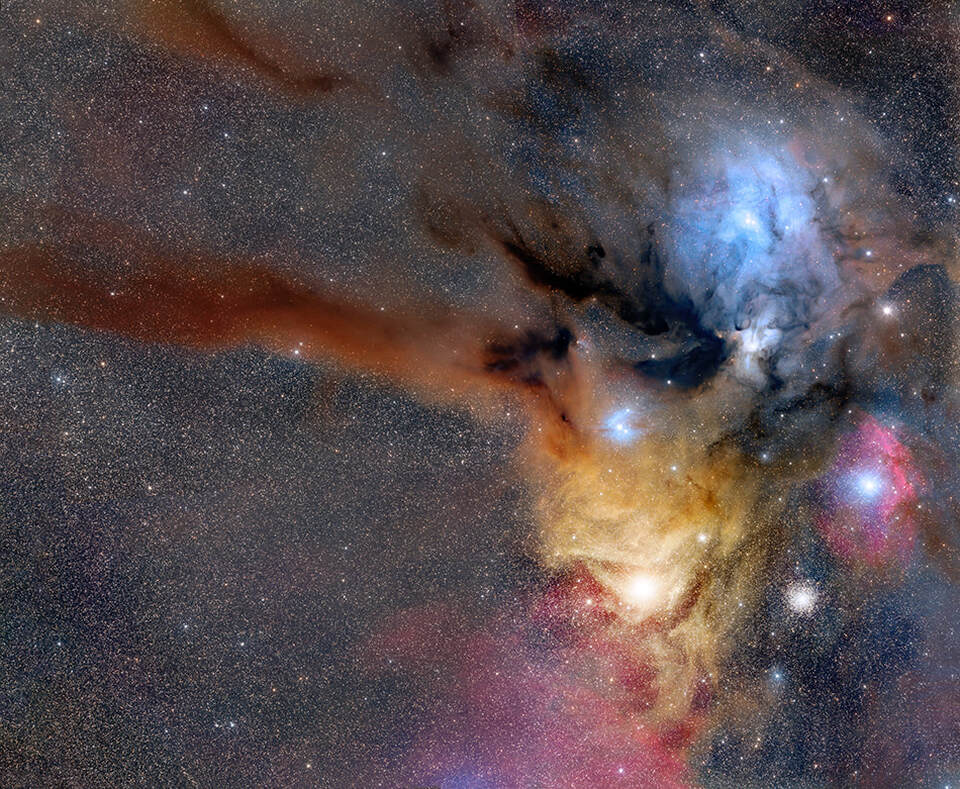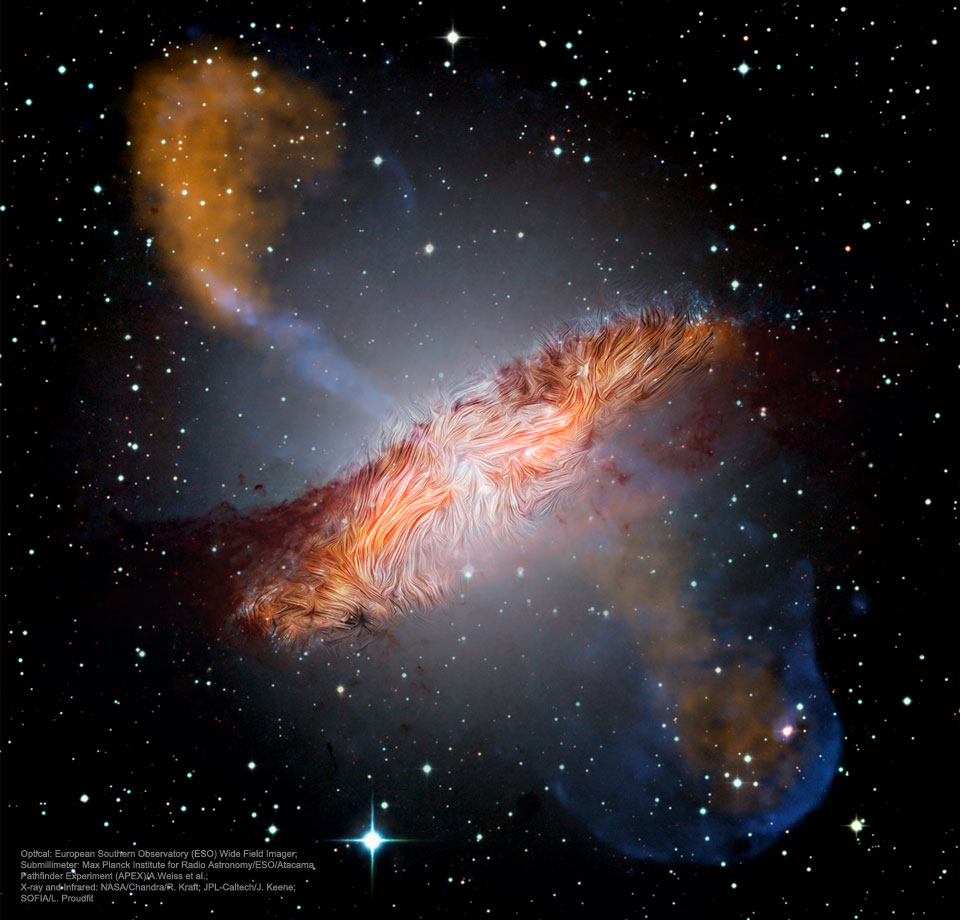NGC 6914 is a reflection nebula located at approximately 6,000 light-years away in the constellation of Cygnus, and was discovered by Édouard Stephan on August 29, 1881. Ultraviolet radiation from stars in the Cygnus OB2 association ionize the nebula’s hydrogen.

Vernice “Bunky” Green (born April 23, 1935) is an American jazz alto saxophonist and educator. Green was raised in Milwaukee, Wisconsin, where he played the alto saxophone, mainly at a local club called “The Brass Rail”. His first big break came when he was hired in New York City by Charles Mingus as a replacement for Jackie McLean in the 1960s. His brief stint with the eccentric bass player made a deep impression. Mingus’ sparing use of notation and his belief that there was no such thing as a wrong note had a lasting influence on Green’s own style.
The next year, Green moved to Chicago, Illinois, where he appeared with several prominent players including Sonny Stitt, Louie Bellson, Andrew Hill, Yusef Lateef, and Ira Sullivan. Originally strongly influenced by Charlie Parker, Green spent a period reassessing his style and studying, emerging with a highly distinctive sound that has deeply influenced a number of younger saxophonists, including Steve Coleman and Greg Osby.
see full post...harles Edward “Cow Cow” Davenport (April 23, 1894 – December 3, 1955) was an American boogie-woogie and piano blues player as well as a vaudeville entertainer. He also played the organ and sang. Davenport, who also made recordings under the pseudonyms of Bat The Humming Bird, George Hamilton and The Georgia Grinder, is a member of the Alabama Music Hall of Fame.
He was born in Anniston, Alabama, United States, one of eight children. Davenport started playing the piano at age 12. His father objected strongly to his musical aspirations and sent him to a theological seminary, where he was expelled for playing ragtime.
Davenport’s career began in the 1920s when he joined Banhoof’s Traveling Carnival, a medicine show. His first fame came as accompanist to blues musicians Dora Carr and Ivy Smith. Davenport and Carr performed as a vaudeville act as “Davenport & Co”, and he performed with Smith as the “Chicago Steppers”. He also performed with Tampa Red. Davenport recorded for many record labels, and was a talent scout and artist for Vocalion Records. Davenport suffered a stroke in 1938 and lost movement in his hands. He was washing dishes when he was found by the jazzpianist Art Hodes. Hodes assisted in his rehabilitation and helped him find new recording contracts.
see full post...
Zapateado is a style of dance and traditional music of Andalusian origins in metre 6
8, with lively movement, marked on two beats, the second being very stressed. The dance shows a gracious tapping. Humanists of 16th century affirmed that zapateado derived from the lactisma of the Roman dancers in times of the Empire.
Among the composers who write Spanish Zapateados is Paco de Lucía, whose Percusión Flamenca is a very popular piece for guitar and orchestra. Pablo de Sarasate composed a Zapateado for violin and piano as part of his Spanish Dances, Op. 23. The piece is replete with harmonics, double stops, left hand pizzicatos, and is often performed by young virtuosos.
see full post...Rho Ophiuchi (ρ Ophiuchi) is a multiple star system in the constellation Ophiuchus. The central system has an apparent magnitude of 4.63. Based on the central system’s parallax of 9.03 mas, it is located about 360 light-years (110 parsecs) away. The other stars in the system are slightly farther away.
The central pair is known as Rho Ophiuchi AB. It consists of at least two blue-colored subgiants or main-sequence stars, designated Rho Ophiuchi A and B, respectively. Rho Ophiuchi AB is a visual binary, and the sky-projected distance between the two stars appears to be 3.1″, corresponding to a separation of at least 344 astronomical units (au).

Harvey William Mason (born February 22, 1947) is an American jazz drummer, record producer, and member of the band Fourplay. Mason grew up in Atlantic City, New Jersey and attended Atlantic City High School.
Mason endorses Canopus drums, Murat Diril cymbals, Remo drumheads, DW pedals, and Vic Firth drumsticks. Mason has his own Vic Firth Harvey Mason signature drumstick and Vic Firth Harvey Mason Chameleon signature drumstick.
https://www.youtube.com/watch?v=SvXxuyEU-0s
see full post...Paul Laurence Dunbar Chambers Jr. (April 22, 1935 – January 4, 1969) was a jazz double bassist. A fixture of rhythm sections during the 1950s and 1960s, his importance in the development of jazz bass can be measured not only by the extent of his work in this short period, but also by his impeccable timekeeping and virtuosic improvisations. He was also known for his bowed solos. Chambers recorded about a dozen albums as a leader or co-leader, and as a sideman, especially as the anchor of trumpeter Miles Davis‘s “first great quintet” (1955–63) and with pianist Wynton Kelly(1963–68).
Born in Pittsburgh, Pennsylvania on April 22, 1935, to Paul Lawrence Chambers and Margaret Echos. He was brought up in Detroit, Michigan following the death of his mother. He began playing music with several of his schoolmates on the baritone horn. Later he took up the tuba. “I got along pretty well, but it’s quite a job to carry it around in those long parades, and I didn’t like the instrument that much”.
see full post...
Joe Cuba (April 22, 1931 – February 15, 2009), was an American conga drummer of Puerto Rican descent widely regarded as the “Father of Latin Boogaloo“.
Cuba (birth name: Gilberto Miguel Calderón Cardona) was born in New York City, Cuba’s parents moved from Puerto Rico to New York City in the late 1920s and settled in Spanish Harlem, a Latino community located in Manhattan. Cuba was raised in an apartment building where his father had become the owner of a candy store located on the ground floor (street level floor). His father had organized a stickball club called the Young Devils. Stickball was the main sport activity of the neighborhood. After Cuba broke a leg he took up playing the conga and continued to practice with the conga between school and his free time. Eventually, he graduated from high school and joined a band.
In 1950, when he was 19 years old, he played for Joe Panama and also for a group called La Alfarona X. The group soon disbanded and Cuba enrolled in college to study law. While at college he attended a concert in which Tito Puente performed “Abaniquito“. He went up to Tito and introduced himself as a student and fan and soon they developed what was to become a lifetime friendship. This event motivated Cuba to organize his own band. In 1954, his agent recommended that he change the band’s name from the José Calderón Sextet to the Joe Cuba Sextet and the newly named Joe Cuba Sextet made their debut at the Stardust Ballroom.
see full post...Charles Mingus Jr. (April 22, 1922 – January 5, 1979) was an American jazz double bassist, pianist, composer and bandleader. A major proponent of collective improvisation, he is considered to be one of the greatest jazz musicians and composers in history, with a career spanning three decades and collaborations with other jazz legends such as Louis Armstrong, Duke Ellington, Charlie Parker, Dizzy Gillespie, Dannie Richmond, and Herbie Hancock.
Mingus’s compositions continue to be played by contemporary musicians ranging from the repertory bands Mingus Big Band, Mingus Dynasty, and Mingus Orchestra, to the high school students who play the charts and compete in the Charles Mingus High School Competition. In 1993, the Library of Congress acquired Mingus’s collected papers—including scores, sound recordings, correspondence and photos—in what they described as “the most important acquisition of a manuscript collection relating to jazz in the Library’s history”. Charles Mingus was born in Nogales, Arizona. His father, Charles Mingus Sr., was a sergeant in the U.S. Army. Mingus was largely raised in the Watts area of Los Angeles. His maternal grandfather was a Chinese British subject from Hong Kong, and his maternal grandmother was an African-American from the southern United States. Mingus was the third great-grandson of the family’s founding patriarch who was, by most accounts, a German immigrant. His ancestors included German American, African American, and Native American.
see full post...
When galaxies collide — what happens to their magnetic fields? To help find out, NASA pointed SOFIA, its flying 747, at galactic neighbor Centaurus A to observe the emission of polarized dust — which traces magnetic fields. Cen A’s unusual shape results from the clash of two galaxies with jets powered by gas accreting onto a central supermassive black hole. In the resulting featured image, SOFIA-derived magnetic streamlines are superposed on ESO (visible: white), APEX (submillimeter: orange), Chandra (X-rays: blue), and Spitzer (infrared: red) images. The magnetic fields were found to be parallel to the dust lanes on the outskirts of the galaxy but distorted near the center. Gravitational forces near the black hole accelerate ions and enhance the magnetic field. In sum, the collision not only combined the galaxies’ masses — but amplified their magnetic fields. These results provide new insights into how magnetic fields evolved in the early universe when mergers were more common.

Michael Franti (born April 21, 1966) is an American rapper, musician, poet, activist, documentarian, and singer-songwriter, known for his participation in many musical projects, most with a political and social emphasis, including the Beatnigs and the Disposable Heroes of Hiphoprisy. He is the creator and lead vocalist of his current independent project, Michael Franti & Spearhead, a band that blends hip hop with a variety of other styles including funk, reggae, jazz, folk, and rock. He is also an outspoken supporter for a wide spectrum of peace and social justice issues, and he is especially an advocate for peace in the Middle East. Michael Franti was born in Oakland, California. His mother, Mary Lofy, had Irish, German, and Belgian ancestry, and his father, Thomas Hopkins, was of African-American and Native American descent. However, his mother put him up for adoption because she was afraid that her racist family would not accept him. He was adopted by Carole Wisti and Charles Franti, a Finnish American couple in Oakland, who at the time had three biological children and one adopted African American son. Charles Franti was a professor in the department of epidemiology and preventive medicine of the UC Davis School of Veterinary Medicine and died in 2003. Michael’s four adoptive siblings are named Rebecca, Sara, Dan, and Matthew. Michael spent his grade 9 school year at Highland Junior High School in Edmonton, Alberta. He then attended Davis Senior High School and University of San Francisco on a full basketball scholarship.
https://www.youtube.com/watch?v=A0fYKguHFcQ
see full post...
Locksley Wellington “Slide” Hampton (born April 21, 1932) is an American jazz trombonist, composer and arranger. Described by critics as a master composer, arranger and uniquely gifted trombone player, Hampton’s career is among the most distinguished in jazz. As his nickname implies, Hampton’s main instrument is slide trombone, but he also occasionally plays tuba and flugelhorn.
Slide Hampton was born in Jeannette, Pennsylvania. Laura and Clarke “Deacon” Hampton raised 12 children, taught them how to play musical instruments and set out with them as a family band. The family first came to Indianapolis in 1938. The Hamptons were a very musical family in which mother, father, eight brothers, and four sisters, all played instruments. His sisters included Dawn Hampton and Virtue Hampton Whitted. Slide Hampton is one of the few left-handed trombone players. As a child, Hampton was given the trombone set up to play left-handed, or backwards; and as no one ever dissuaded him, he continued to play this way.
At the age of 12, Slide played in his family’s Indianapolis jazz band, The Duke Hampton Band. By 1952, at the age of 20, he was performing at Carnegie Hall with the Lionel Hampton Band. He played with the Buddy Johnson‘s R&B band from 1955–1956, then became a member of Maynard Ferguson‘s band (1957–1959), where he played and arranged, providing excitement on such popular tunes as “The Fugue,” “Three Little Foxes” and “Slides Derangement.” In 1958, he recorded with trombone masters on the classic release of Melba Liston, Melba Liston and Her ‘Bones. As his reputation grew, he soon began working with bands led by Art Blakey, Tadd Dameron in 1969, Barry Harris, Thad Jones, Mel Lewis, and Max Roach, contributing both original compositions and arrangements. In 1962, he formed the Slide Hampton Octet, with horn players Freddie Hubbard, and George Coleman. The band toured the U.S. and Europe and recorded on several labels.
see full post...James Mundell Lowe (April 21, 1922 – December 2, 2017) was an American jazz guitarist who worked often in radio, television, and film, and as a session musician. He produced film and TV scores in the 1970s, such as the Billy Jack soundtrack and music for Starsky and Hutch, and worked with André Previn‘s Trio in the 1990s. The son of a Baptist minister, Lowe grew up on a farm in Shady Grove, Mississippi, near Laurel. He started playing guitar when he was eight years old, with his father and sister acting as his first teachers. When he was thirteen, he began running away from home to play in bands.Occasionally his father would find him, bring him home, and warn him about the dangers of whiskey. At sixteen, Lowe worked in Nashville on the Grand Ole Opry radio program. He was a member of the Jan Savitt orchestra before serving in the military during World War II.
At basic training, he became friends with John Hammond, who organized weekend jam sessions. He performed in an Army dance band while in Guadalcanal. After his discharge, he called Hammond, looking for work, and Hammond sent him to Ray McKinley. He spent two years with McKinley’s big band in New York City. He joined the Benny Goodman orchestra, then worked intermittently for the next few years at Café Societyand other clubs in New York.
see full post...